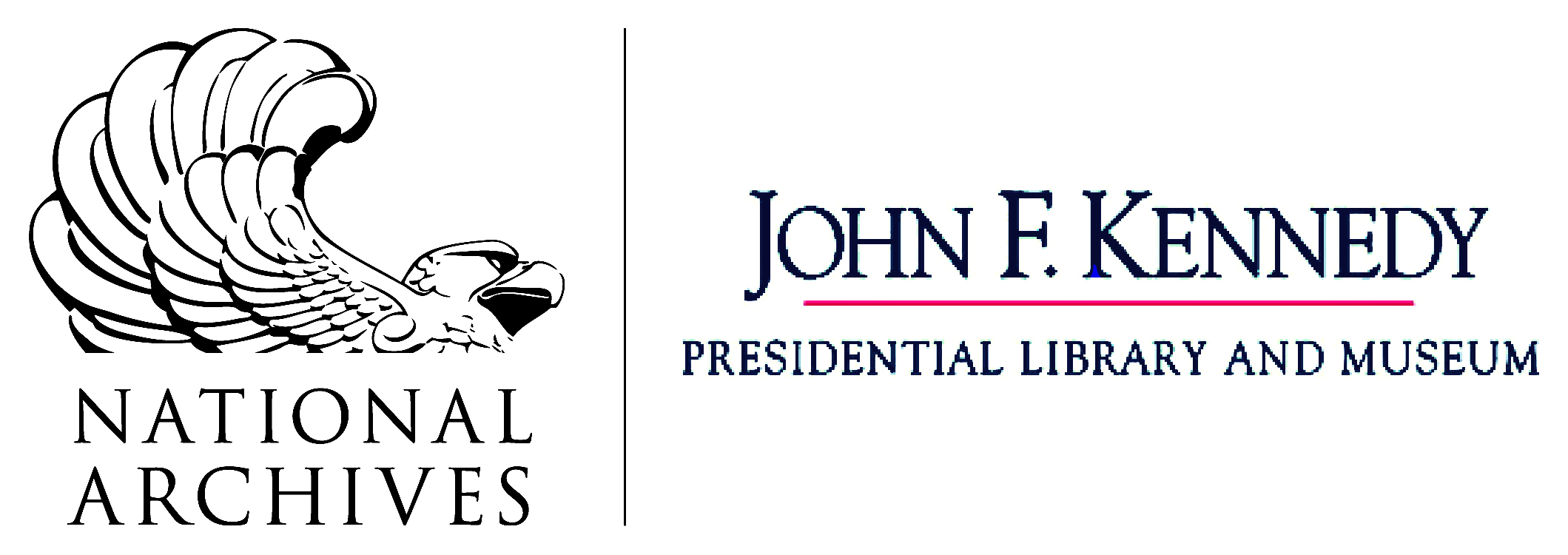By Maryrose Lane Grossman, Audiovisual Reference Archivist
On July 4, 1962, President John F. Kennedy traveled to Independence Hall in Philadelphia, Pennsylvania to address the people of Philadelphia and the United States at the 186th National Observance of Independence Day.
The address came together just days before the trip. The President sometimes drafted his own speeches, though often and in this case, the remarks were drafted by Special Assistant to the President, Theodore “Ted” Sorensen. The President, however, provided robust commentary on page one of the first several drafts.
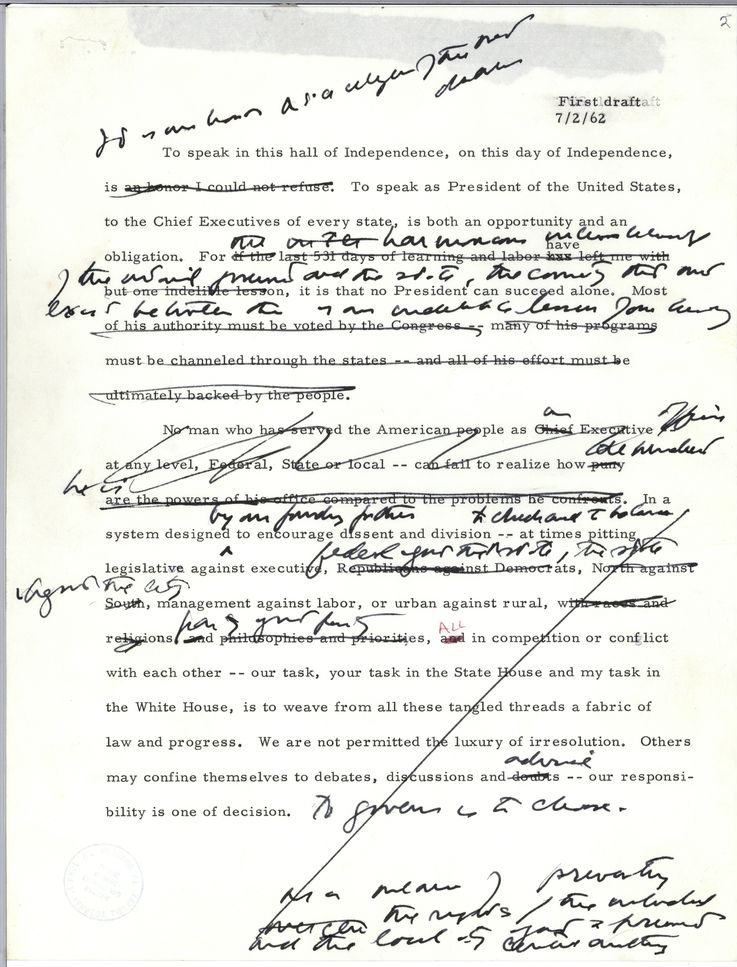
The President traveled by helicopter from Camp David in Maryland to Independence Hall.
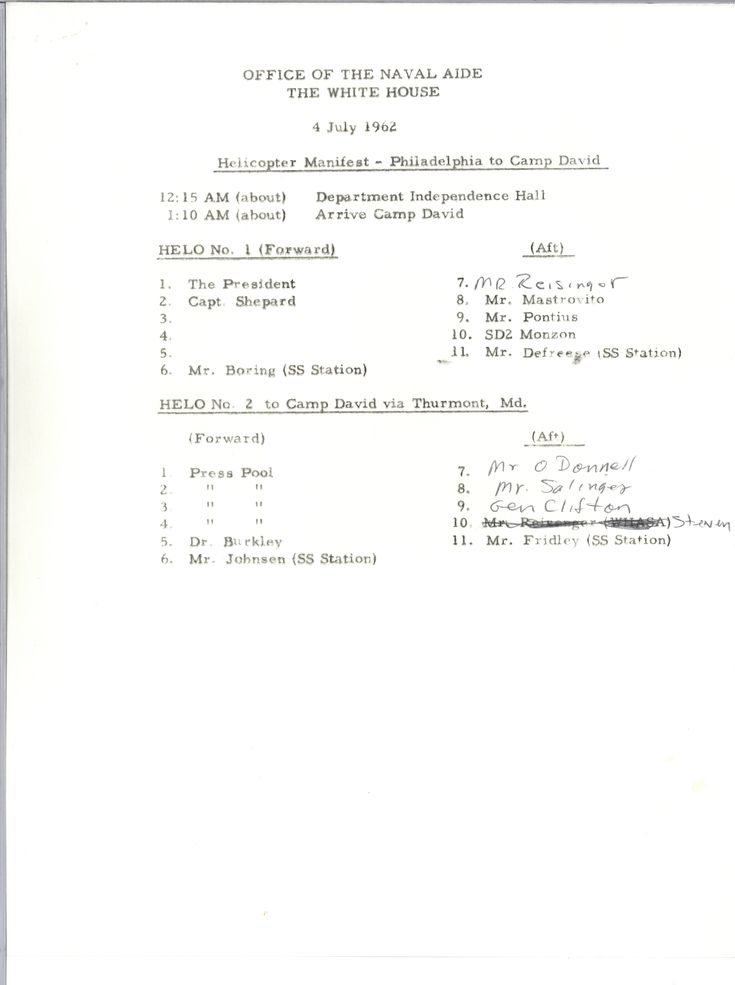
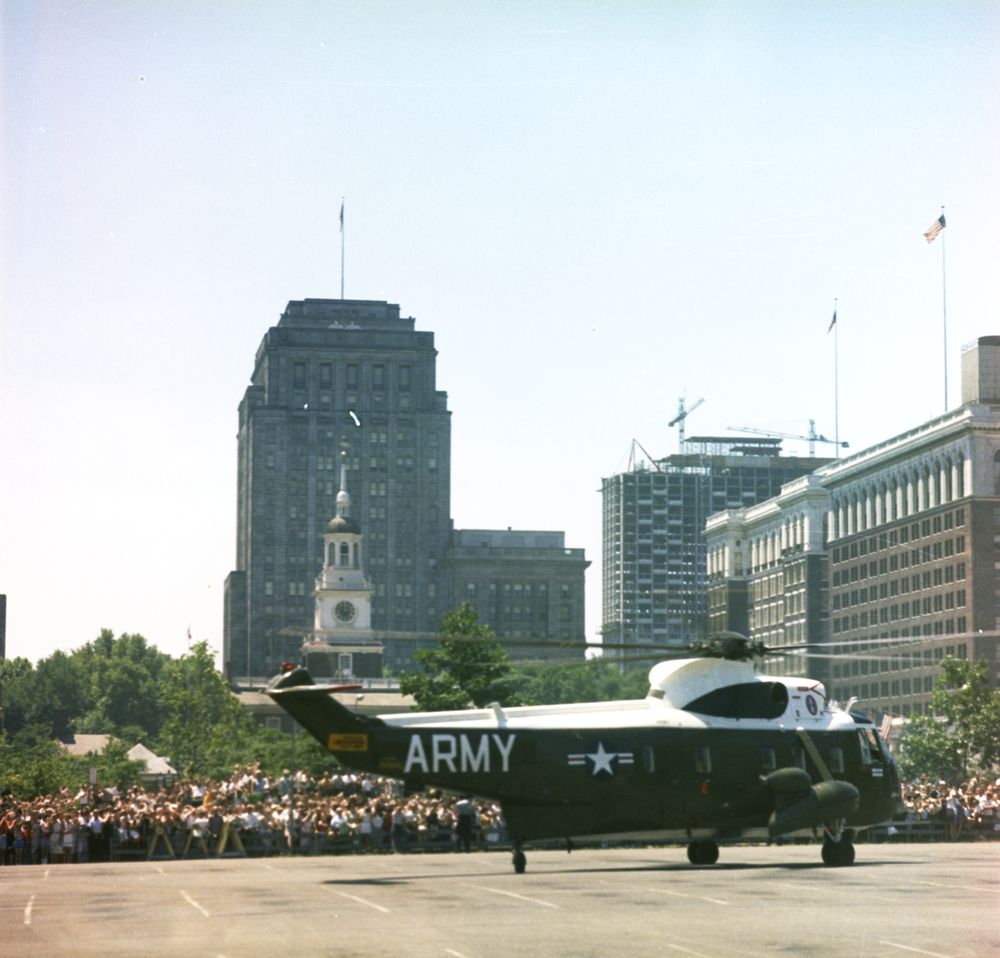
It was a quick trip to the the steps of Independence Hall in front of a large crowd at the National Observance of Independence Day presented by the City of Philadelphia and 54th Annual Governors’ Conference, 4 July 1962.
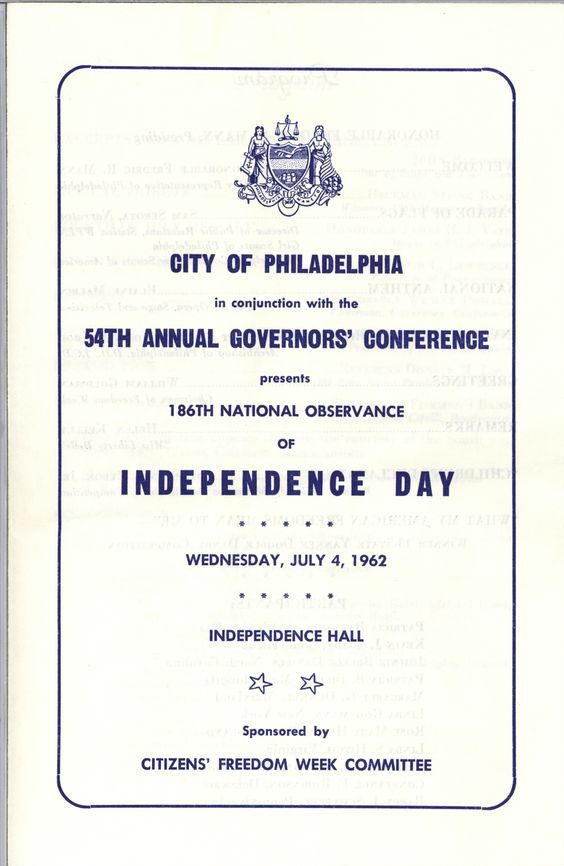
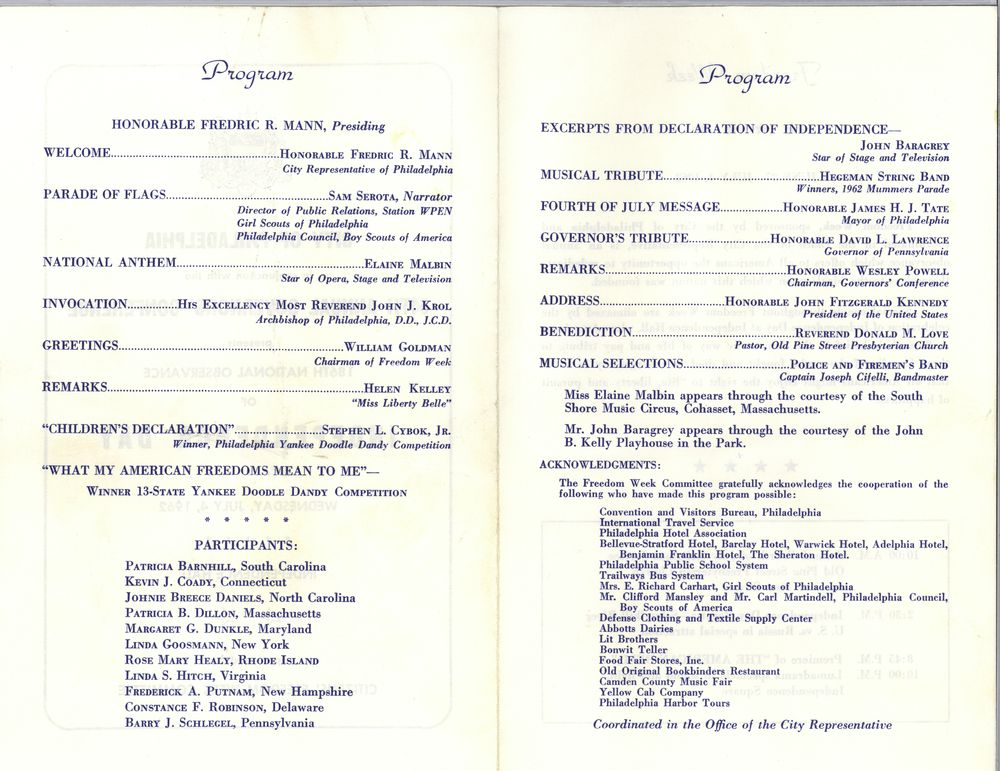
In the speech the President praised the American democratic system, which encouraged differences and allowed for dissent, discussed the enduring relevance of the Constitution and the Declaration of Independence, and addressed the role of the United States in relation to the emerging European Community.
Because our system is designed to encourage both differences and dissent, because its checks and balances are designed to preserve the rights of the individual and the locality against preeminent central authority, you and I, Governors, recognize how dependent we both are, one upon the other, for the successful operation of our unique and happy form of government.
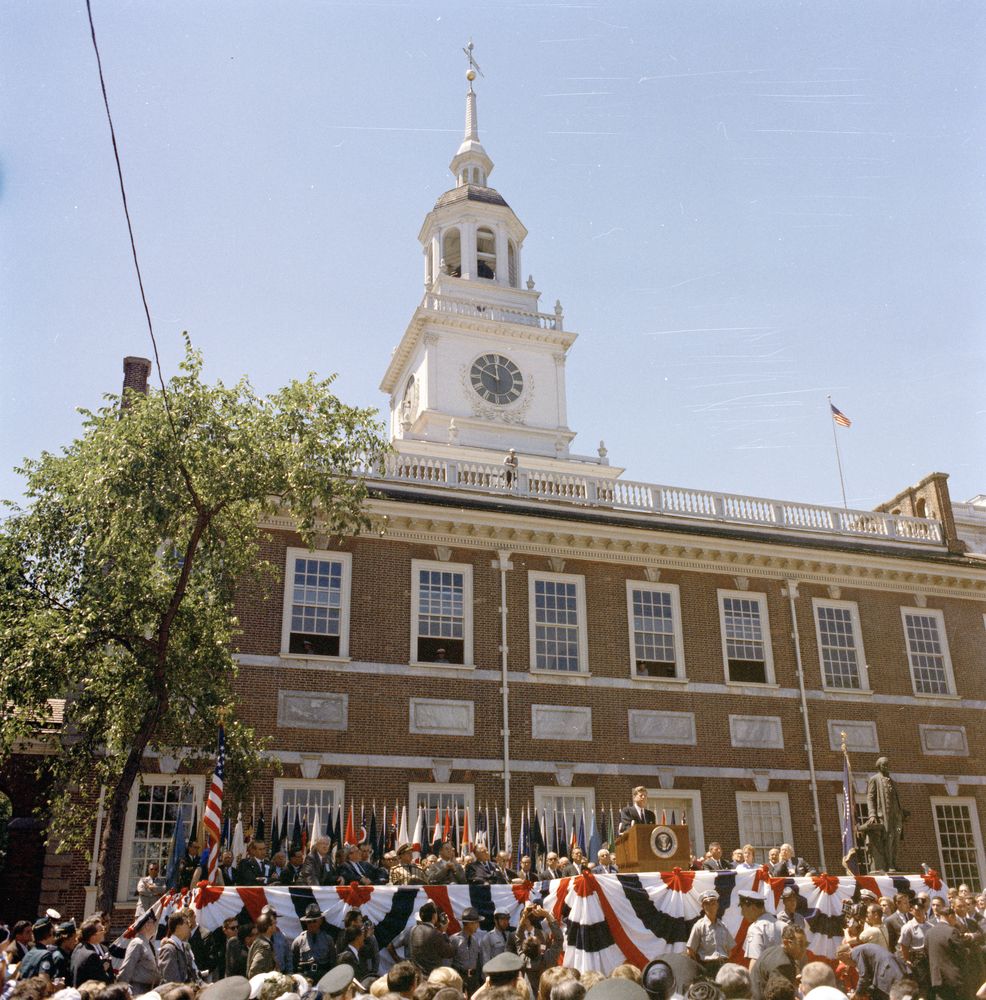
Today, 186 years later, that Declaration whose yellowing parchment and fading, almost illegible lines I saw in the past week in the National Archives in Washington is still a revolutionary document. To read it today is to hear a trumpet call. For that Declaration unleashed not merely a revolution against the British, but a revolution in human affairs. Its authors were highly conscious of its worldwide implications. And George Washington declared that liberty and self-government everywhere were, in his words, “finally staked on the experiment entrusted to the hands of the American people.”
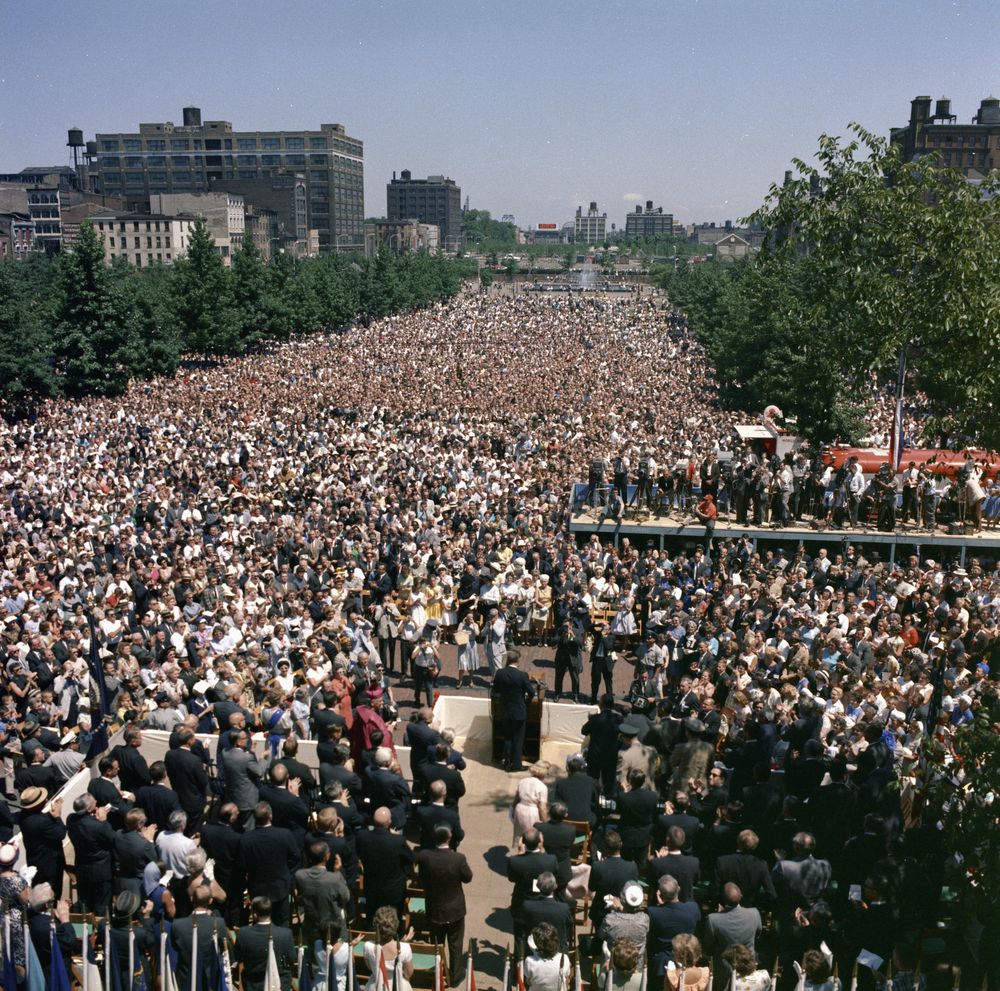
A great new edifice is not built overnight. It was 11 years from the Declaration of Independence to the writing of the Constitution. The construction of workable Federal institutions required still another generation. The greatest works of our Nation’s founders lay not in documents and in declarations, but in creative, determined action. The building of the new house of Europe has followed the same practical, purposeful course. Building the Atlantic partnership now will not be easily or cheaply finished.
The Audiovisual Archives at the John F. Kennedy Library and Museum contains both audio and moving image recordings of the speech:
JFKWHA-113-001. Sound recording (complete) of Address at Independence Hall in Philadelphia, 4 July 1962.
TNC-137-EX. CBS (Columbia Broadcasting System) motion picture excerpt excerpt covering President John F. Kennedy’s full address at Independence Hall in Philadelphia, Pennsylvania, 4 July 1962.
After the speech, President Kennedy visited the iconic Liberty Bell with its abiding inscription:
“Proclaim Liberty Throughout All the Land Unto All the Inhabitants thereof”
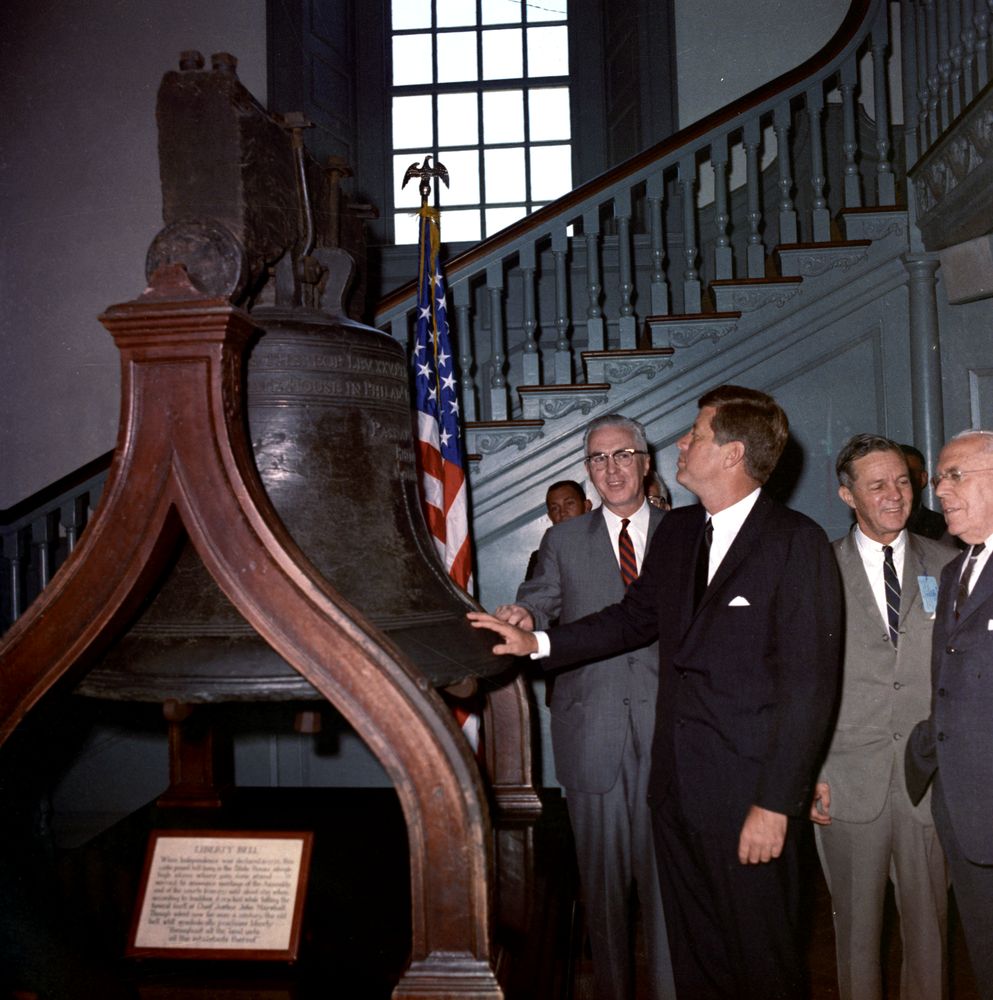
President Kennedy valued the ideals of democratic government as part of this country’s heritage.
USIAAU-039. Audio recording of Senator John F. Kennedy broadcast on WQXR Radio in New York, on July 4, 1957, as part of the station’s observance of the Fourth of July.
We hold these truths to be self-evident, that all men are created equal, that they are endowed by their Creator with certain unalienable Rights, that among these are Life, Liberty and the pursuit of Happiness.–That to secure these rights, Governments are instituted among Men, deriving their just powers from the consent of the governed, –That whenever any Form of Government becomes destructive of these ends, it is the Right of the People to alter or to abolish it, and to institute new Government, laying its foundation on such principles and organizing its powers in such form, as to them shall seem most likely to effect their Safety and Happiness.
As a collector of scrimshaw, President Kennedy typically acquired pieces (primarily engraved sperm whale teeth) portraying maritime and patriotic themes.
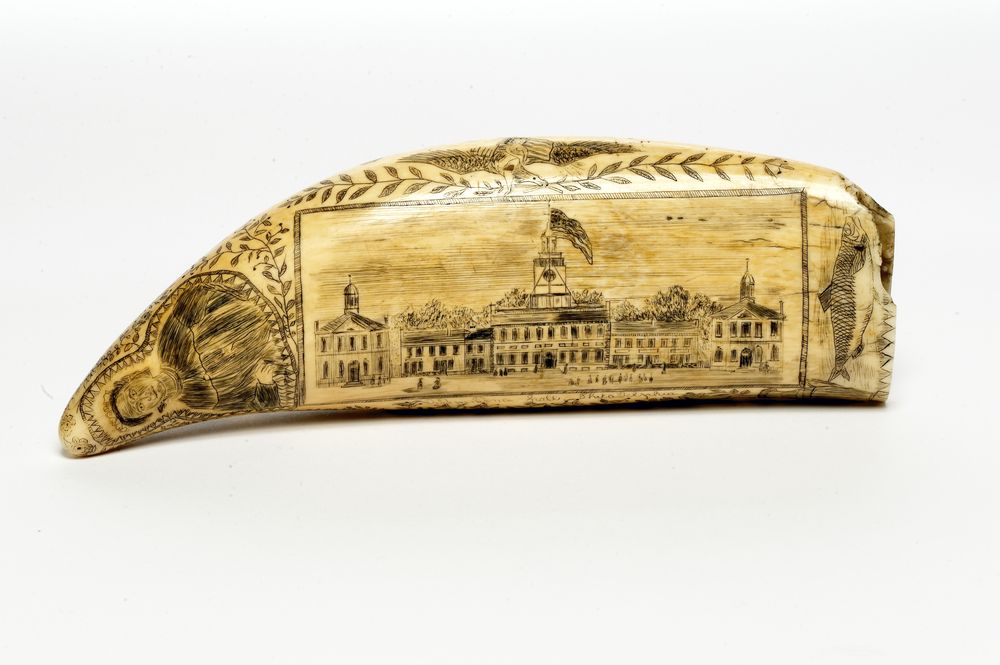
On this uniquely American holiday, discover the timeless relevance of the archival records at National Archives and Records Administration, including the John F. Kennedy Presidential Library and Museum, Boston.
